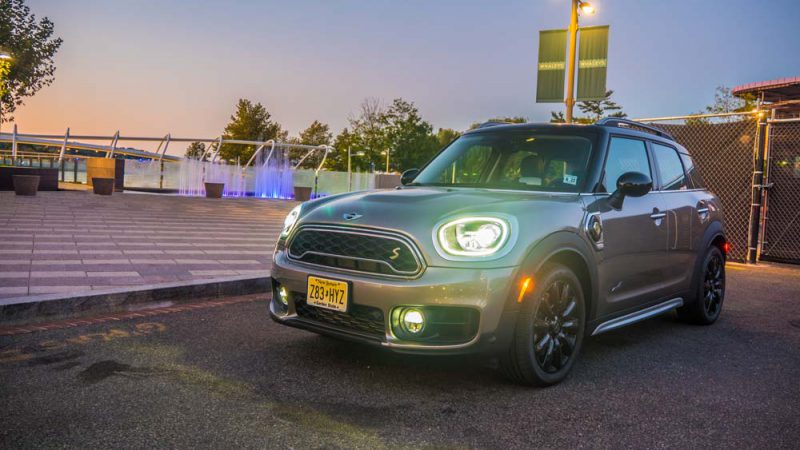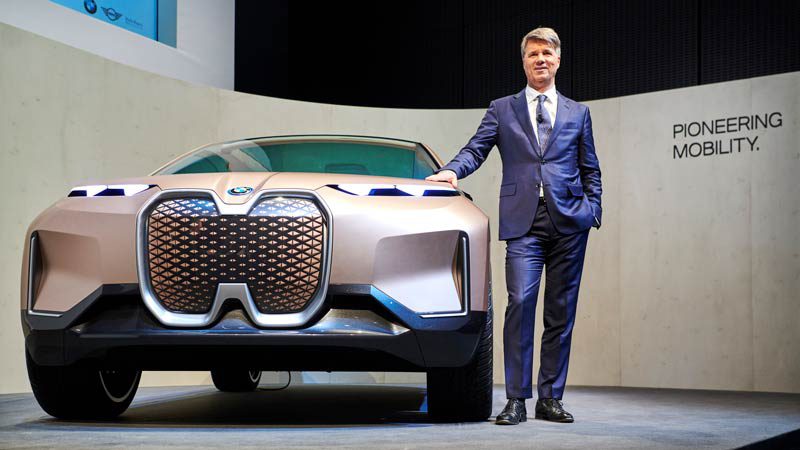German carmaker BMW has announced further moves towards an electric future, with an updated strategy revealed overnight in Munich revealing plans to slash the number of drive-trains and cancelling one of its major models.
BMW already ranks as the leading European carmaker in electrified vehicle sales, with more than 130,000 fully electric vehicles and more than 220,000 plug-in hybrids delivered to customers by the end of last year, and plans to do a lot more.
The carmaker said overnight that it will cut up to half of all its current drivetrains by 2021 in an effort to transition to “more sophisticated and flexible vehicle architectures”.
While it does not give too much detail about the split of pure electric to hybrid electric, it has confirmed again that there will be no further generations of its 3 Series Gran Turismo hatchback, the last of which will enter Australia later this year.
Instead, it will focus on its “Number One > Next” strategy to improve production efficiencies, with which it hopes it will save €12 billion ($A19.2 billion) by 2022.
At the beginning of March, at the Geneva Motor Show, it presented the revised and extended-range plug-in hybrid versions of the BMW 3 Series, BMW 7 Series and BMW X5 Series as well as the new BMW X3.
By the end of 2020, BMW intends to launch more than ten new models or models revised with the fourth technology generation.
By 2021, BMW wants to have five fully electrified models. Part of the e-fleet will be the pioneers BMW i3 (the boosted 40kWh version of which is available in Australia from $A68,700), BMW i4 and BMW iNeXT.
By 2025 it expects this number to increase to at least twelve models.
Along with the growing range of plug-in hybrids, BMW says it will by then have on offer at least 25 electric vehicles.

One of these is the Mini Electric, which is equipped with battery electric drivetrain and is expected to go into production at BMW’s Oxford factory from the end of 2019, and will also be made in China thanks to a JV deal inked between BMW and Great Wall Motors in July 2018.
A plug-in hybrid version is expected to reach Australian shores sometime in 2019.
From 2020, the BMW iX3 – an all-electric version of the BMW X3 – will be manufactured in Shenyang, China, for the world market.
These two models will join the BMW’s quirky electric i3, its new i4 (for which it is preparing its Munich plant) and the “visionary” and autonomous iNext, bringing BMW’s total electric offering to 5 vehicles.
But developments like these don’t come cheap, and to compensate for the increase in outgoings, BMW says it will in the meantime significantly expand its luxury ICE offerings to fill up the coffers, including new generations of the 8 Series, 7 Series, and the new X7.
“We’re significantly expanding our presence in the upper luxury class,” said Harald Krüger, chair of the board of management for BMW AG, in Munich on Wednesday.
“Our first highly automated vehicle will become available in 2021 and we are already now paving the way for the development of the next generation of groundbreaking technology.”
“Our industry is witnessing rapid transformation. In this environment, a sustained high level of profitability is crucial if we are to continue driving change,” said Nicolas Peter, member of the board of management in finance.
“In view of the numerous additional factors negatively impacting earnings, we began to introduce countermeasures at an early stage and have taken a number of far-reaching decisions,” he said.
BMW are also joining forces with fellow carmaker Daimler AG to create “Your Now”, a deal that both auto giants hope will ensure their space in urban mobility services, including Reach Now (multimodal trip planning), Charge Now EV charging, Free Now ride-hailing, as well as Park Now for (you guessed it, parking) and Share Now (we’ll let you fill that one in!).
In 2018, BMW lead the way on European electric car sales claiming 19% of the market compared to VW’s 17% and Mercedes-Benz’ Smart, 10%.

Bridie Schmidt is associate editor for The Driven, sister site of Renew Economy. She has been writing about electric vehicles since 2018, and has a keen interest in the role that zero-emissions transport has to play in sustainability. She has participated in podcasts such as Download This Show with Marc Fennell and Shirtloads of Science with Karl Kruszelnicki and is co-organiser of the Northern Rivers Electric Vehicle Forum. Bridie also owns a Tesla Model Y and has it available for hire on evee.com.au.

